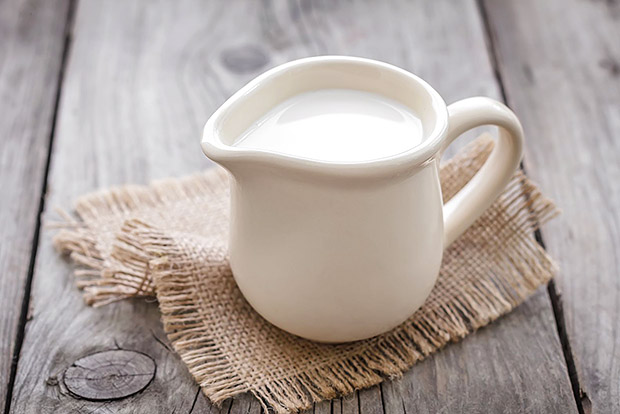
Low-fat milk has been considered a quality source of protein and calcium, but opinions about whether or not dairy is essential for health are changing among scientists and consumers. Drinking milk may not be for everyone, and it’s important to learn more about all sides of the story before deciding if it is right for you.
Health Benefits of Milk
The type of calcium in milk is easily absorbed by the body. Along with protein and vitamin D, these nutrients are associated with bone health and a reduced risk for osteoporosis. Milk is also rich in potassium, a key nutrient in lowering blood pressure. Dairy intake has been linked to reduced risks for colon cancer. The protein in milk keeps you feeling full and may be why some studies suggest dairy can aid in weight loss.
Problems Caused by Milk
Those with lactose intolerance cannot digest the lactose (sugar) in dairy, and drinking milk results in an upset stomach. While dairy may help lower the risk of colon cancer, high intakes may also increase the risk of prostate and ovarian cancers. Milk can contain vitamin A in the form of retinol, and elevated intakes of retinol can weaken bones. Consuming high-fat dairy increases the intake of saturated fat and cholesterol, which is related to a greater risk for heart disease.
Drinking Milk
Milk is nutritious in moderation, and if you enjoy drinking it, there may be no reason to cut it out. However, growing research reveals that milk may not be essential for health. If you can’t tolerate milk or you choose not to drink it, you can still get all the nutrients that you need. The nutrients that milk supply can also be found in foods such as vegetables, beans, and eggs.
Sources



 3 Healthy Lunches for Your Work Week
3 Healthy Lunches for Your Work Week
 5 Tips for Stretching Your Budget for Healthy Food
5 Tips for Stretching Your Budget for Healthy Food
 Best Ways to Reduce Added Sugar
Best Ways to Reduce Added Sugar
 Healthy Tips to Lighten Up Picnic Foods
Healthy Tips to Lighten Up Picnic Foods
 Tips to Keep Track of Water Intake
Tips to Keep Track of Water Intake
 Butter vs. Margarine: What’s the Best Choice?
Butter vs. Margarine: What’s the Best Choice?
 Healthy Eating Myths
Healthy Eating Myths
 How to Select and Store Fruits and Vegetables
How to Select and Store Fruits and Vegetables

 Pinterest
Pinterest RSS Feed
RSS Feed